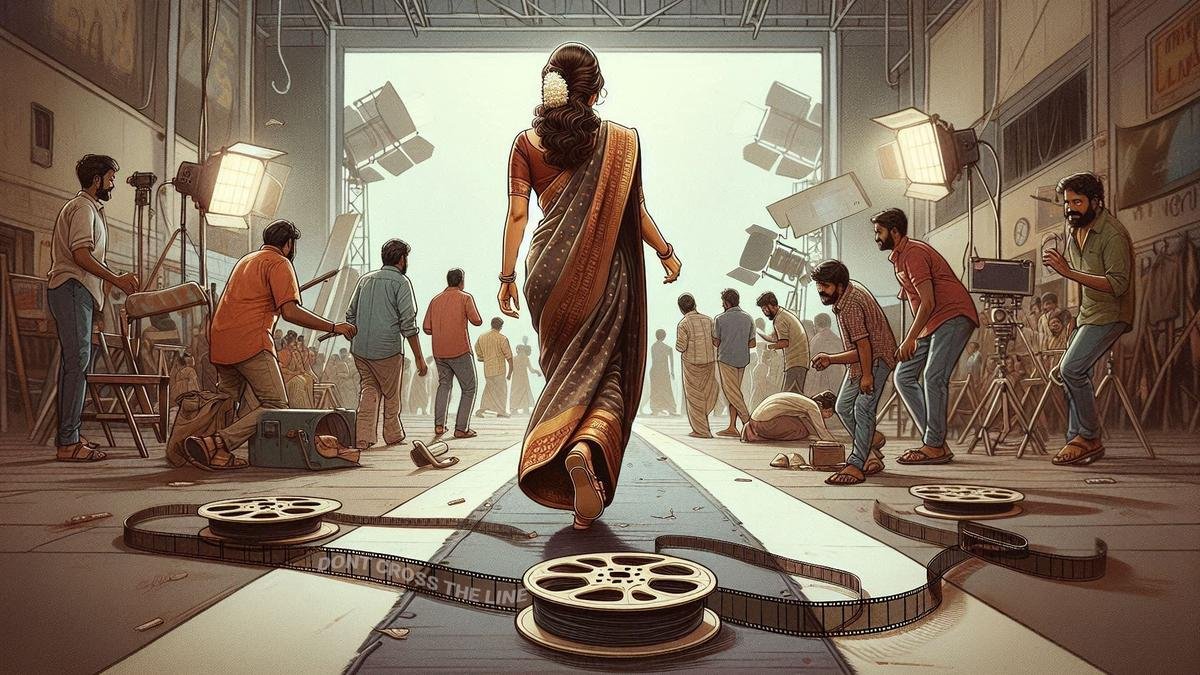The Indian film industry is patriarchal, exploitative and needs a radical reset for the safety and sanity of female professionals engaged in the cinematic arts. This is the opinion voiced by several prominent female artistes and technicians from across regions who spoke to The Hindu in the aftermath of the Justice K. Hema Committee report. The 235-page report, submitted to the Kerala government in 2019 and published with limited redactions five years later, exposed instances of sexual abuse, gender inequality, illegal bans and gross labour violations in the Malayalam film industry.

Following the release of the report, several female actors came forward with accusations of sexual harassment against many prominent actors and technicians in Malayalam cinema. Its fallout saw the executive committee of the Association of Malayalam Movie Artistes (AMMA) being dissolved amid growing allegations of sexual assault and misbehaviour against some of its members. All the 17 members of the committee, including president and senior actor Mohanlal, submitted their resignation.
The findings of the Hema panel sent shockwaves across the Indian film industry. Throughout the country, film bodies and unions have been forced to reckon with the revelations of the report and enforce redressal forums. In Tamil cinema, the South Indian Artistes’ Association (SIAA) (Nadigar Sangam) resolved to impose a five-year ban from the film industry on the perpetrators of sexual offences if a complaint is found to be true. Members of Film Industry For Rights and Equality (FIRE) have asked the Karnataka government to constitute a committee headed by a retired judge to study and report on issues faced by women, including sexual harassment in the Kannada industry. Similar demands have been raised by actors and technicians in the Telugu, Bengali and Hindi film industries. In Malayalam, meanwhile, the formation of a new collective called Progressive Filmmakers’ Association has been mooted, dismantling past structures of power and prioritise equality and social justice.

Actor Priyamani
| Photo Credit:
Special Arrangement
“While the #MeToo movement fizzled out in a short duration, something like the latest committee is being taken more seriously and spoken about in length,” says actor Priyamani, who has worked in Telugu, Tamil, Kannada and Hindi cinema. “Forming a committee in other industries and more such reports coming out would be beneficial”.
Actor Swara Bhasker, one of the first — and few — prominent voices from Bollywood to respond to the report, says that while she hopes other states would institute similar panels, it is “not enough to merely investigate”.
Swara Bhasker
| Photo Credit:
Special Arrangement
“The governments at the centre and state should institute guidelines specific to the film industries and ensure that there are protections for women (and men) working in all departments of the film, TV and media industry and there ought to be a government-sanctioned grievance redressal cell that can help complainants and victims and is accountable to the public,” Swara stresses.
The #MeToo movement in 2018 revealed shocking instances of sexual misconduct, leading to legal cases in some instances. Singer Chinmayi Sripada was one of the first voices to speak out from the Tamil film and music industry, stating that there were no institutional structures in the media and entertainment industry to address issues of sexual harassment. Nevertheless, a culture of intimidation and silence has persisted in the film world, preventing dissenting voices from being heard. As highlighted in the Hema Committee report, male actors, filmmakers and producers wield incredible power, capable of banning and blacklisting anyone they please. Threats of financial harm and professional setbacks often deter victims from naming names.
“The simple answer (to this) is to look at the career graph of Hindi film actress Tanushree Dutta who accused Nana Patekar of misconduct and sexual harassment in 2008 (the media largely ignored her and she was painted as ‘difficult’) and then again in 2018. In that decade she basically stopped working and moved to the USA,” says Swara.
Unsafe zones
After working as an assistant director for over a decade, Indhu V.S turned director in 2022 with the Malayalam film 19(1)(a) starring Vijay Sethupathi and Nithya Menen. According to Indhu, one joined a film set in 2010 with great trepidation.
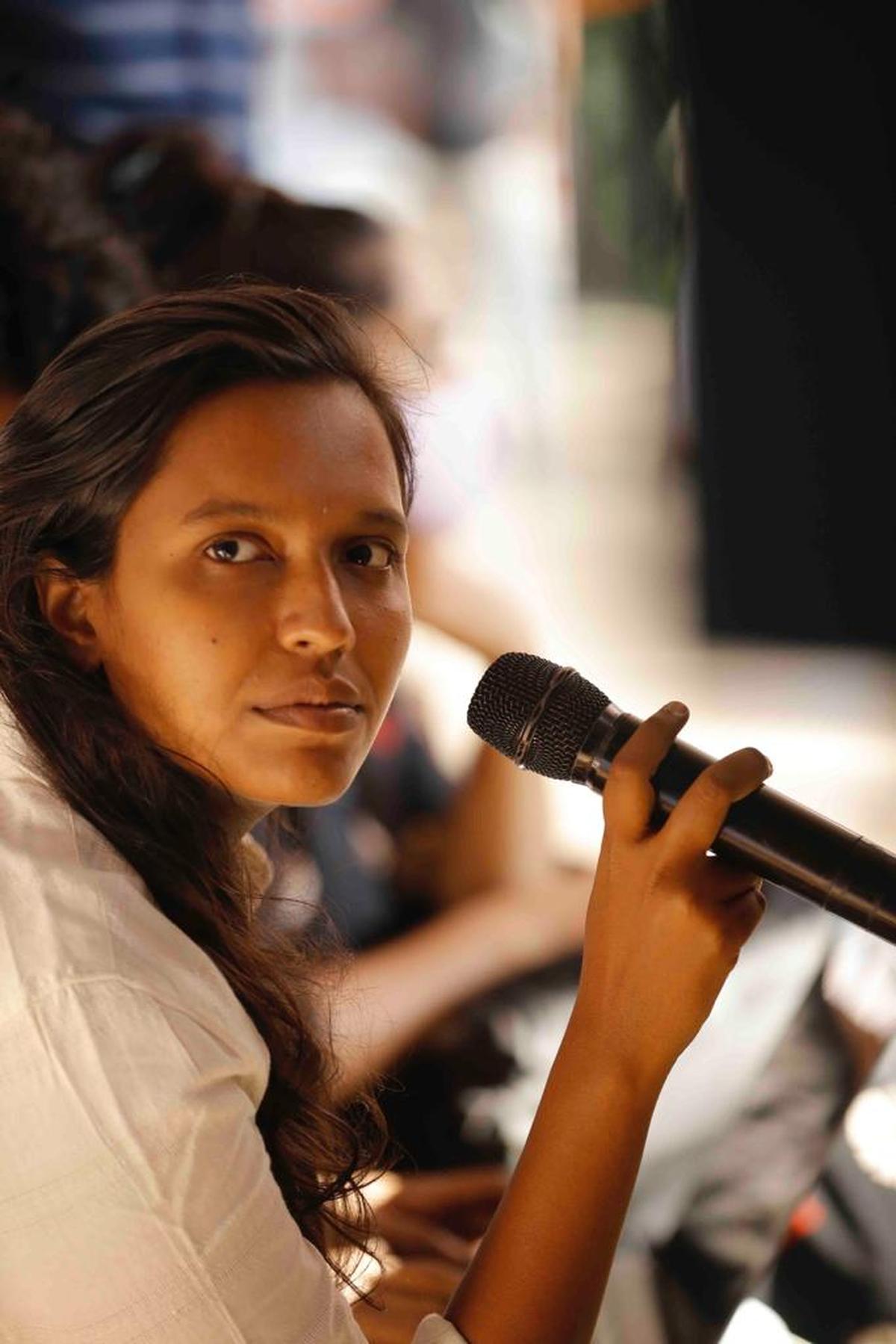
Filmmaker Indhu V.S
| Photo Credit:
Special Arrangement
“It was a place with 80 to 100 men and at the most two or three women. I was the only female assistant director. It makes one extremely self-conscious and aware of one’s body and the conversations around you.”

She says it never felt like a transparent workspace and was more like a ‘boys’ club’. “No one understands that a woman could also be passionate about cinema, finding her voice and telling her stories. Women are made to feel irrelevant.”
Almost uniquely, exploitation in the film world begins even before one has embarked on a professional career. ‘Casting couch’—the seeking of sexual favours for roles—remains alarmingly commonplace, and is often shrugged off as a necessary barrier to entry. Women are expected to “adjust and “compromise” in their pursuit of opportunities. As per the Hema report, some of the witnesses interviewed by the panel produced evidence to establish the fact that “there is demand for sex for the very entry into cinema”.
“A work culture where women feel pressured to grant sexual favours for possible career advances is at the outset an exploitative work culture,” Swara says.

Actor-producer Rima Kallingal, co-founder of the Women in Cinema Collective (WCC), the platform whose petition led to the setting up of the Hema Committee, says that she was blessed to step into tinsel town with a filmmaker who treated newcomers with dignity in a gender-neutral space. A Kerala State Film Awardee, Rima made her debut in the 2009 Malayalam film Ritu, directed by filmmaker Shyamaprasad.
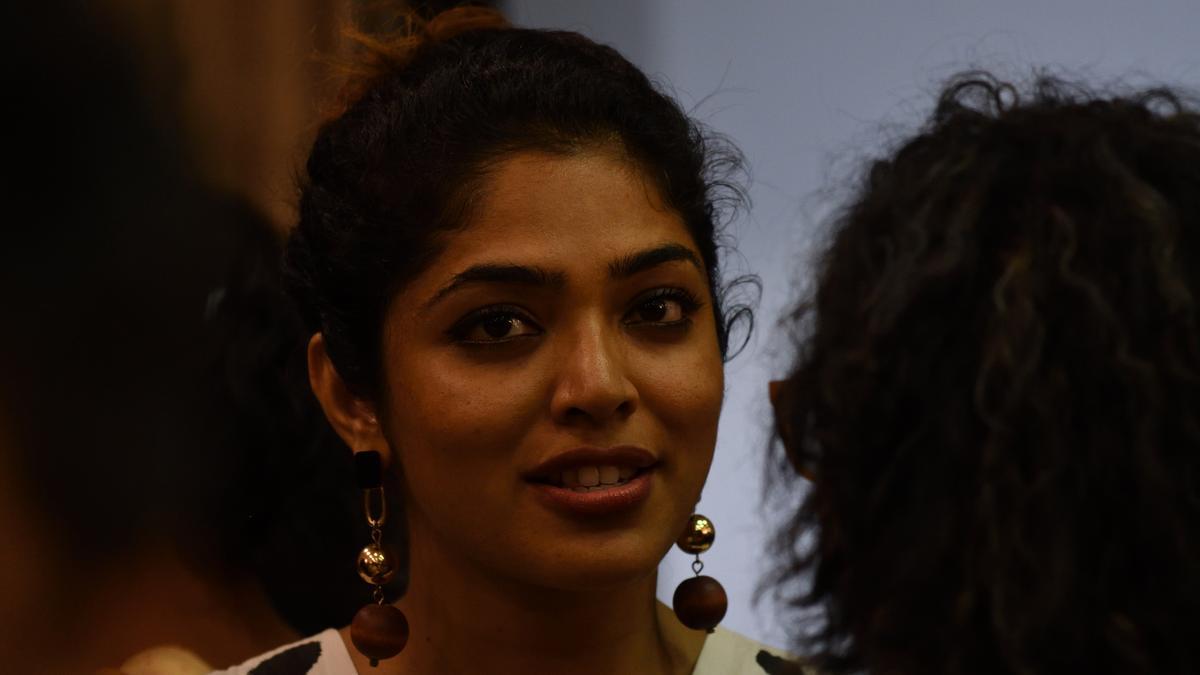
Actor and WCC co-founder Rima Kallingal
| Photo Credit:
Special Arrangement
However, from there, she moved to a space where she felt “completely devalued”, Rima says.
“I was reminded of my ‘shelf value’ as a female artiste and how we have no market value. Sexually loaded comments are a constant”.
Swara recalls one instance where, early in her career, she was ceaselessly stalked and harassed by a director on a 50-day outdoor shoot.
“I kept the man at bay and tolerated it in a polite manner because I didn’t want to lose the film but I confided in the executive producer who was a kind man and he helped and protected me a lot. Soon after I was in a position to negotiate for personal staff so I always had company and felt safe.”

Beyond exploitation, the Hema report highlighted the inhuman working conditions, including the lack of essential facilities such as toilets and changing rooms, available to women. There is a strident demand for improving the environment of film sets, which remain chaotic and informal and entail long hours.
Recently, veteran actor Radhika disclosed an incident where she saw a group of men on a Malayalam film set watching nude videos of female actors that they had recorded with a hidden camera inside her vanity van.
Speaking about the incident Radhika talked about, Priyamani says, “It’s very shameful that someone could do that to women. Why don’t they do that to men? Why only women are targeted? Not just vanity vans, why don’t they keep cameras in men’s hotel rooms and bathrooms? Finally, people are speaking about it and that’s a good move.”
Preetha Jayaraman, a cinematographer who works predominantly in Kannada cinema, says that when she started out, there were no caravans available for technicians. When they were finally introduced, only one caravan would be assigned to all female technicians. The situation is comparatively better today, Preetha adds.
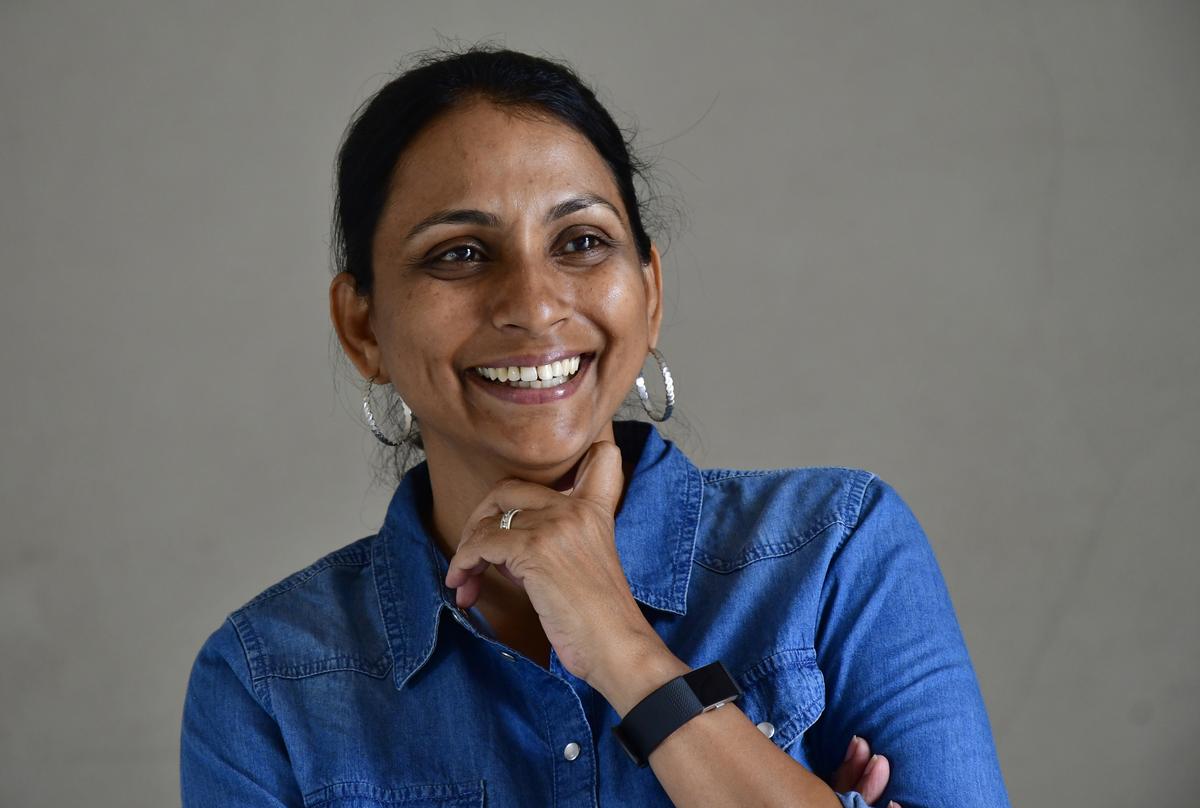
Cinematographer Preetha Jayaraman
| Photo Credit:
MURALI KUMAR K
“When I started as a technician, when we would go to Prasad Labs for colour grading, there were no toilets for women. This was in the 90s and that’s how the situation was. Today, every DI suite has a bathroom.”
“When it comes to changing rooms or restrooms, at least as far as the sets I’ve been on, have been provided for everyone,” Priyamani says. “The character artists and the junior artists have had their needs taken care of. Obviously, I’m saying it from my experience and this is from all the industries and films I’ve worked on.”
For women, negotiating a measure of respect and authority in the film industry has always been an uphill battle. Indhu says by the time she turned director with 19(1)(a), there were positive changes in the Malayalam industry.
“Earlier, it was extremely difficult even to get a production assistant to listen to your story. They were amused that a woman had the temerity to want to make a film. I feel that till Anjali Menon’s Bangalore Days came, women scenarists were not taken seriously by the industry.”
Even then, instead of seeing her as a director calling the shots, technicians would refuse to perceive her as someone helming the film. “They were not happy about taking directions from a woman.”
Jokes, snide remarks, and patronizing comments remain commonplace.
“After the formation of the Women in Cinema Collective, I have heard the crew say among themselves, almost as a joke, ‘she is a member of WCC, be careful or we will have them behind us!,” Indhu says.

No industry for women
In 2017, weeks after the sexual assault of an actress from the Malayalam industry came to light, actor Varalaxmi Sarathkumar in a strongly-worded Twitter post spoke about her own experiences, and called for the setting up of a redressal forum for women in the industry.

Varalaxmi Sarathkumar
| Photo Credit:
Special Arrangement
Years later, she says that things seem bleak for women everywhere, not just the film industry. “I have been saying for ages that we need an effective, unbiased committee to be formed for women to feel safe.”
While the Sexual Harassment of Women at Workplace (Prevention, Prohibition and Redressal) Act, 2013 mandates filmmakers and production companies to set up Internal Complaints Committees (ICCs), their effectuality in redressing harassment complaints has been questioned.
“Such committees have had a history of asking women to compromise, sort issues out and move in. Many issues don’t come to light since it is a taboo to talk about such things,” Varalaxmi says.
Varalaxmi says she hopes for an impartial, women-led committee for the Tamil film industry that redresses complains and ensure that action is taken.

She tempers her expectations with: “Unfortunately this is a country that is unsafe for women, and problems start from the time girls are brought up, believing that they are the weaker sex. Women also feel unsafe to report sexual abuse in fear of a circle of power that they will be affected by. They are vulnerable, and the threat of being shamed hangs large. When the way society has not changed into thinking, how can you expect the film industry to change?”
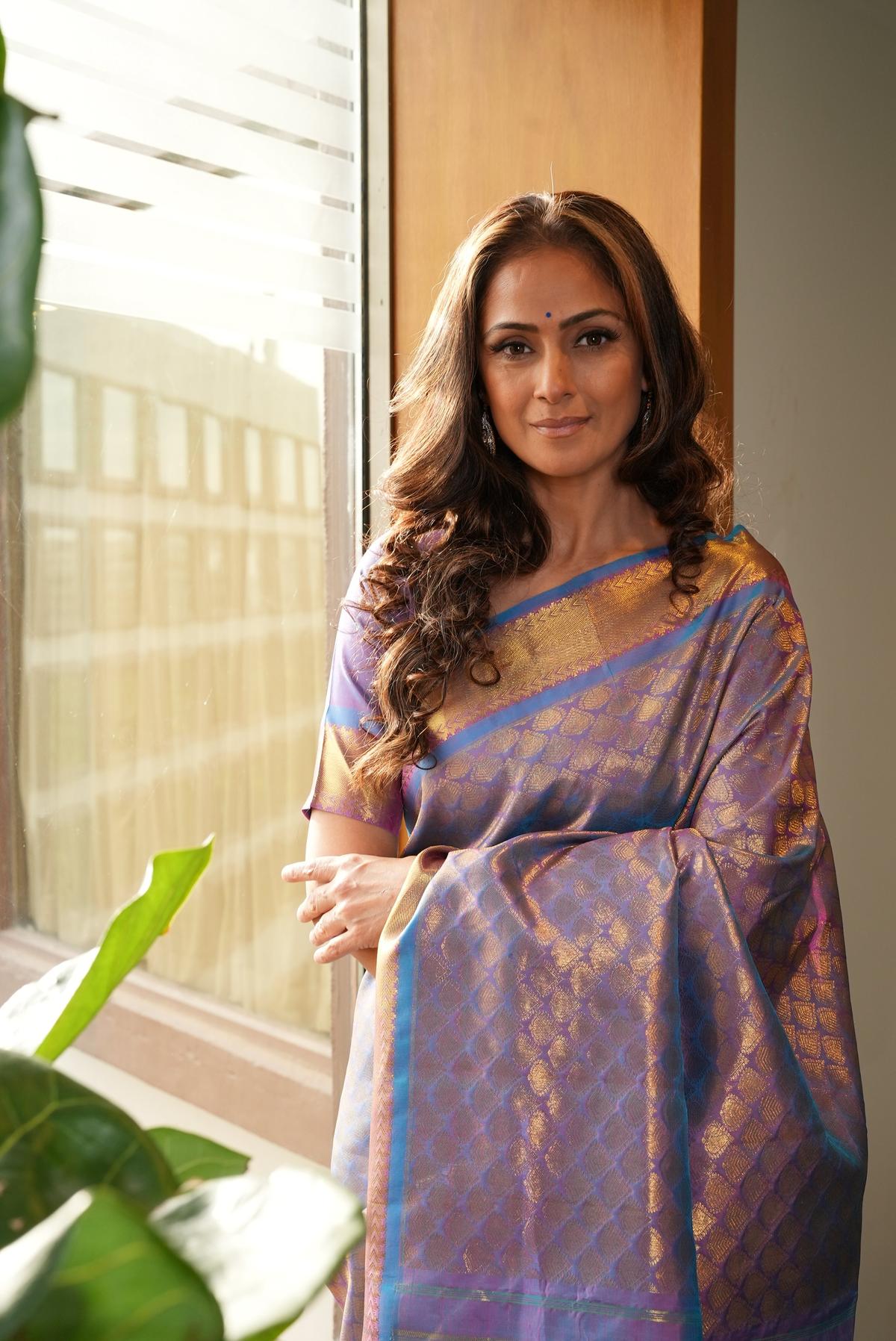
Actor Simran
| Photo Credit:
Special Arrangement
Veteran actor Simran has worked extensively in all the regional industries, as well as Bollywood (she recently made a stirring comeback to Hindi films with titles like Rocketry and Gulmohar). The star, who won critical and commercial acclaim for her performances in Tamil cinema over several decades with films like KannathilMuthamittal and Vaalee, says that a committee to probe instances of sexual exploitation and harassment in the Tamil film industry would be a good decision, but it should focus on the safety of all genders in the industry.
“If such a committee is formed, it should listen to complaints from people of all genders. This is a very crucial period for the film industry and how we react will be keenly observed.”
She adds, “This world is not an easy place to navigate; the life of a woman is not easy… honestly, nor is that of a man. We are all very aware of the difficulties everyone faces to make it in the industry, and we face it right from a young age itself. And it’s not just in the movie industry, it’s prevalent in every other field too. The feeling of someone touching you without your consent is so terrible; it becomes a core memory that we can never recover from all throughout our lives. You can forgive.. but you can never ever forget.”
Read More | Malayalam cinema industry in turmoil: Tracking the fallout of the Hema Committee Report
Simran also muses that for those entering the industry nowadays, it’s important to keep their focus clear: “Maintain your dignity and self-esteem, and ignore all the noise around you, even if anyone keeps troubling you.”
“As a mother of two boys, I educate them to be responsible and trustworthy around women and hope all men take on the onus of doing the same,” she concludes.
(with inputs from Saraswathy Nagarajan, Gopinath Rajendran, Vivek M.V., S. Poorvaja and Gautam Sunder)
Published – September 20, 2024 05:42 pm IST
